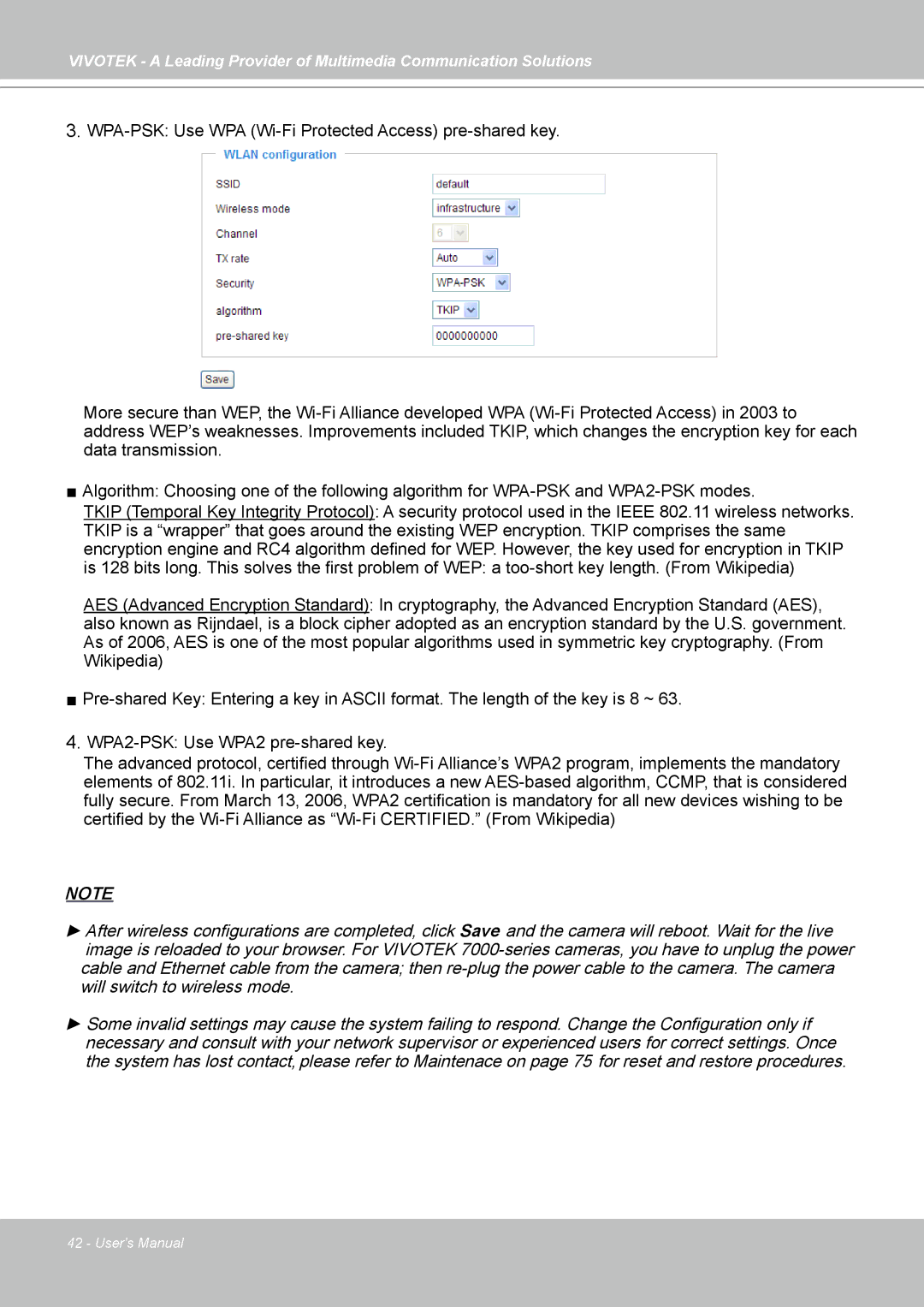
VIVOTEK - A Leading Provider of Multimedia Communication Solutions
3.
More secure than WEP, the
■Algorithm: Choosing one of the following algorithm for
TKIP (Temporal Key Integrity Protocol): A security protocol used in the IEEE 802.11 wireless networks. TKIP is a “wrapper” that goes around the existing WEP encryption. TKIP comprises the same encryption engine and RC4 algorithm defined for WEP. However, the key used for encryption in TKIP is 128 bits long. This solves the first problem of WEP: a
AES (Advanced Encryption Standard): In cryptography, the Advanced Encryption Standard (AES), also known as Rijndael, is a block cipher adopted as an encryption standard by the U.S. government. As of 2006, AES is one of the most popular algorithms used in symmetric key cryptography. (From Wikipedia)
■
4.
The advanced protocol, certified through
NOTE
►After wireless configurations are completed, click Save and the camera will reboot. Wait for the live image is reloaded to your browser. For VIVOTEK
cable and Ethernet cable from the camera; then
►Some invalid settings may cause the system failing to respond. Change the Configuration only if necessary and consult with your network supervisor or experienced users for correct settings. Once the system has lost contact, please refer to Maintenace on page 75 for reset and restore procedures.
42 - User's Manual
